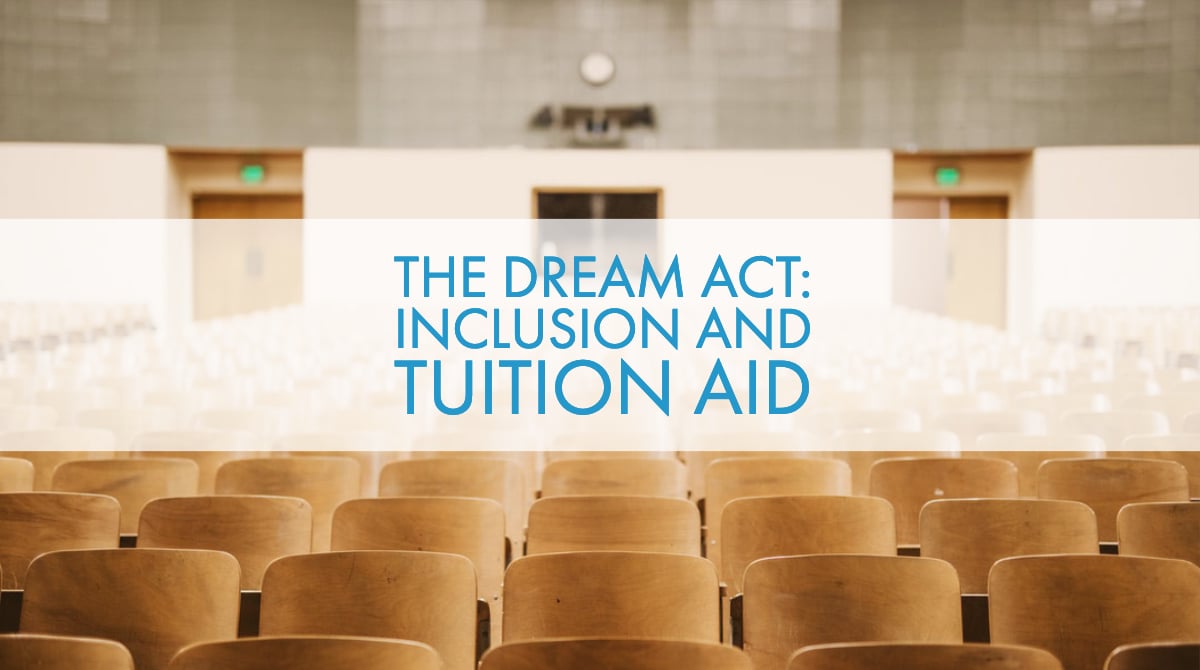In today’s divisive political climate, the issue of immigration is a hot topic. Immigration policies are fiercely debated, and while adult immigrants are the ones to bear the brunt of this harsh debate, they are far from the only ones affected. Undocumented children are frequently caught in the crossfire, and the results can be heartbreaking.
Many children were brought to the US before they learned to walk and grew up calling America home. Despite being fluent English speakers and attending American schools for most of their lives, they have historically hit legal roadblocks when they attempt to pursue higher learning alongside their peers.
Educational Opportunities for Dreamers
Today, there is hope for these young, aspirational students to both become legal residents and achieve their academic dreams. The 2017 version of the Dream Act allows current, former, and future undocumented high-school students to acquire conditional legal residency through three pathways; 3 years of employment, 2 years of military service, or 2 years of higher education. While this offers prospective college students a chance to continue their education and eventually become naturalized citizens, “Dreamers” still have to face soaring tuition costs with little financial assistance.
State-based Tuition Assistance to the Rescue
Without citizenship, applying for grants and scholarships was once a closed door. Considering only 9% of today’s college students can rely on their parents to pay the majority of tuition, with 45% claiming no parental support at all, it’s guaranteed that a large majority of undocumented students will require tuition aid as much as anyone else. The federal-level Dream Act is also being supported by state-level legislation. So far, 18 states have passed laws offering additional aid.
While the laws vary from state to state, most allow Dreamers to qualify for in-state tuition and apply for certain merit-based grants and scholarships. In New York, the Jose Peralta New York State DREAM Act provides tuition assistance programs to Dreamers that have attended high school in the state for at least two years and graduated or obtained an equivalency diploma. The NY Act also began a "DREAM Fund" - funded by private contributions - to provide scholarships for these aspiring students.
In California, Dreamers are eligible for the following financial aid resources upon submission of their certified GPA:
- Cal Grant, Chafee Grant, Middle Class Scholarship
- UC Grants, State University Grants
- California Community College (CCC) BOG Fee Waiver
- EOP/EOPS
- Some University scholarships
- Some private scholarships administered by campuses
While not perfect solutions, these steps are encouraging, as many states have yet to develop policies that help undocumented high school students to afford higher education. The current presidential administration has also threatened to reduce protection for Dreamers. Hopefully, the American spirit of inclusiveness and justice will prevail, with more states enforcing policies to support these young students. Fairness isn’t the only reason support for Dreamers is important. Dreamers have accomplished countless high-level achievements, providing immeasurable contributions to American society.
How EdTech Contributes to Inclusiveness
Enabling young people from all backgrounds to continue earning degrees isn’t up to our government alone; it’s a group effort. Universities, educators, and educational publishers all play a role in leveling the playing field. For example, universities can offer more lenient scheduling requirements so working students have a higher chance of long-term success. Edtech companies in particular help by:
- Making distance learning more widely available, allowing working students to study on their own schedule
- Improving the quality of online learning by offering customized learning experiences
- Providing students with more tools to track their progress and identify problem areas in time to rectify them
- Offering more affordable textbook options in comparison to new, hardcover textbooks
Education has consistently proven to raise national health, lower crime rates, and improve overall quality of life. Consider the small ways in which your school or organization can contribute to educational equality. Every small step taken towards inclusive education adds up to make a big difference for all of us.
Gutenberg Technology prides itself on being an edtech provider, as we strongly believe in accessible education for all who seek it. Whether you're just starting to leverage edtech tools yourself or perhaps a tenured user, we're here to help you make the biggest impact possible through beautifully crafted and highly interactive course materials.






Leave a comment